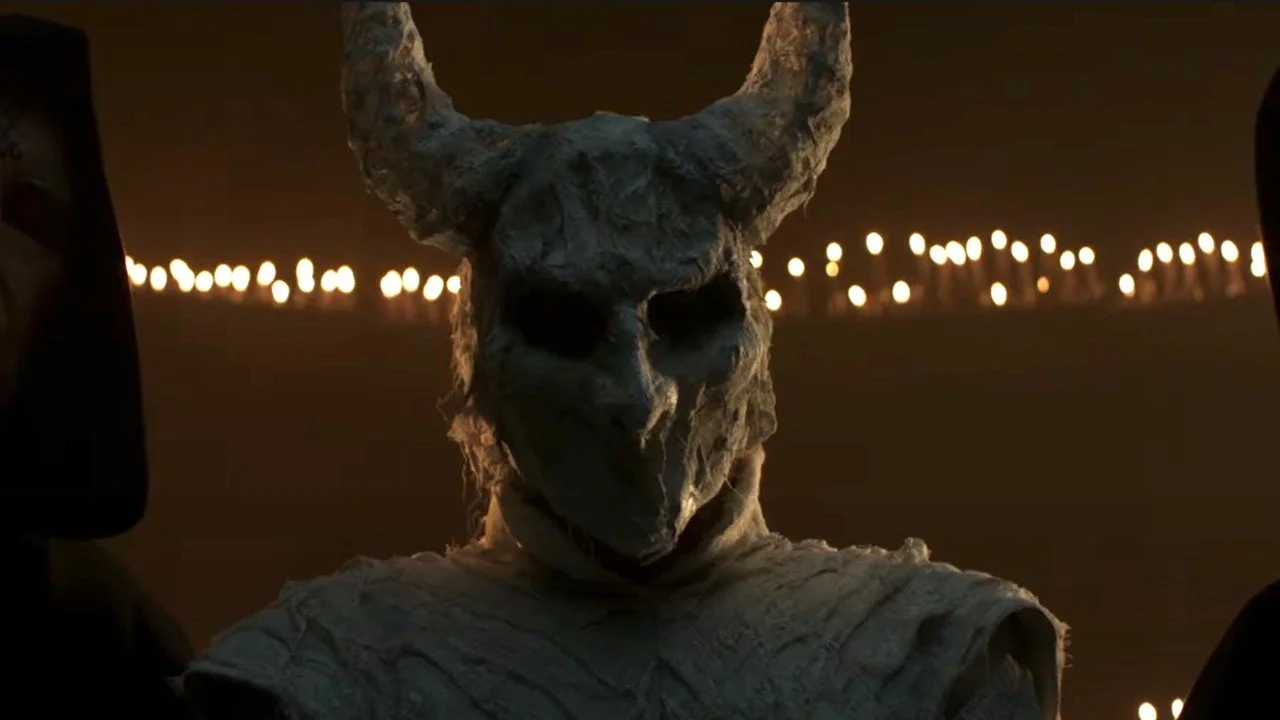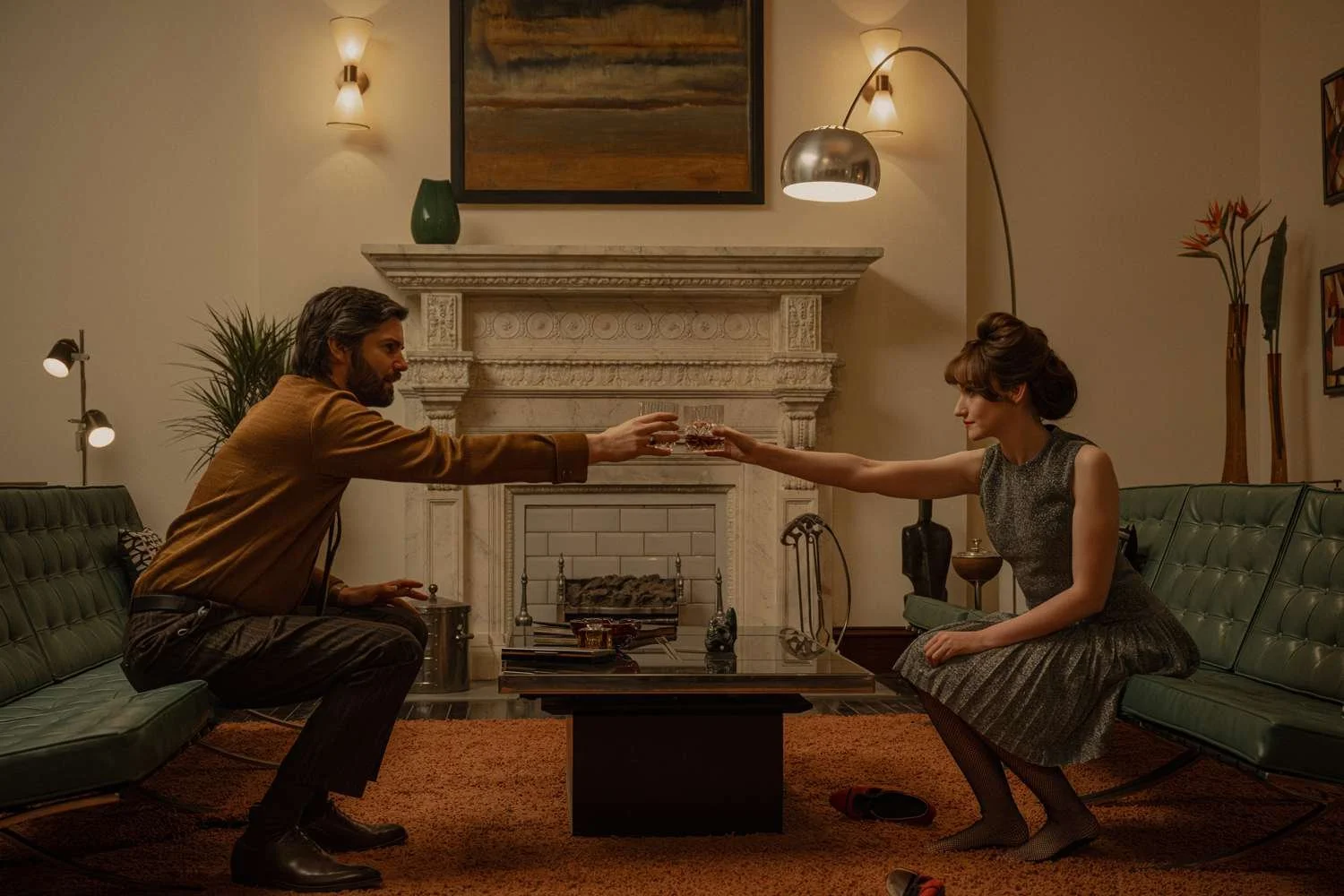‘Apartment 7A’ Review: Satanic Panic
While Natalie Erika James imbues her prequel to Rosemary’s Baby with enough surreal imagery to keep us invested, it’s unfortunately hampered by an uninspired – and predictable – story.
One of the most shocking moments of Roman Polanski’s Rosemary’s Baby occurs shortly after Rosemary (Mia Farrow) and Guy Woodhouse (John Cassavetes) move into their new home. While doing the laundry, Rosemary meets Terry Gionoffrio (Victoria Vetri), who lives with Roman (Sidney Blackmer) and Minnie Castevet (Ruth Gordon). The titular protagonist grows a liking to Terry, and quickly befriends her, promising to come regularly so they can do their laundry and converse together. One scene later, she’s dead. Terry fell from the apartment window, causing immense shock and sorrow to not only Rosemary but the Castevets, who took her in while she recovered from substance abuse.
The scene was a singular moment in New Hollywood, where younger, more adventurous filmmakers sought to break narrative convention and form in ways that weren’t thought possible beforehand. Polanski was one of many directors who were an integral part of the movement, which includes Francis Ford Coppola, Sam Peckinpah, Paul Schrader, Brian De Palma, and William Friedkin, to name just a few. As such, there’s no denying Rosemary’s Baby was one of its more influential – and essential – movies, not only for Hollywood at the time but for the horror genre as a whole.
It's even harder to see the genre the way it has evolved now without it, but its legacy has been tainted by Polanski himself, who should be spending the rest of his life in jail. In fact, this critic had not seen Rosemary’s Baby precisely for that reason and feels deeply uncomfortable supporting any of Polanski’s work. However, with its direct-to-streaming prequel Apartment 7A now releasing on Paramount+, Rosemary’s Baby had to be viewed to understand the franchise, and characters, alongside the movie’s impact on horror.
Director Natalie Erika James, known for 2020’s Relic, fills in the gaps on Terry Gionoffrio’s (now played by Julia Garner) story in Apartment 7A, which is set before the Castevets took a liking to Rosemary Woodhouse as their vessel for the birth of the son of Satan, after Terry’s tragic demised. Minnie and Roman are now played by Dianne Wiest and Kevin McNally, who give Terry a place to stay after she fell headfirst on the street while drugged out of her mind. They also give Terry her own apartment and hope she will be back on her feet soon enough to get her life back on track. Of course, the Castevets are not at all what they seem to be, and Terry will, unfortunately, learn this the hard way.
Knowing what eventually occurs for Terry, one who watches Apartment 7A may wonder how she got to falling out of a window. We do get to this, and it’s arguably the film’s most effective scene. But what comes before is simply a dull rehash of Rosemary’s Baby, containing none of the style or sense of atmosphere that made the 1968 original stand the test of time as one of the greatest horror films ever made. Instead of delving into a psychologically active character study on a recovering addict slowly realizing that two leaders of a Satanic cult are helping her prime her body so she can carry the son of Satan, James, alongside screenwriters Christian White and Skylar James remove Terry’s agency and makes her a simple victim in the couple attempting to breed that son by way of Jim Sturgess’ Alan Marchand.
While the pregnancy scene lacks the ethereal doom of Polanski and William A. Fraker’s lens, James and cinematographer Arnau Valls Colomer craft a quasi-surreal musical number with a distorted set worthy of German expressionism and creative nightmarish imagery which brilliantly posits Terry’s eventual cruel punishment. It’s also the film’s only scene with enough bursts of creativity to keep us watching because the rest is visually unimpressive and, most disappointing, unscary. Part of what made Rosemary’s Baby so terrifying is the constant gaslighting Rosemary would get from her husband and obstetrician, knowing something is terribly wrong but never getting the sound answers she desperately wants to hear.
Apartment 7A removes all of this and instead focuses on Terry being haunted by haphazard visions of a nameless demon, while Roman and Minnie intervene in her life once they find out about her pregnancy. Credit where credit is due, Wiest and McNally are both fully committed to their portrayals of the Castevets, with the former channeling her inner Ruth Gordon to gonzo perfection. It’s not a great performance, but it’s one that deserves our respect, with Wiest’s cartoonish emphasis on ‘dear’ in every sentence adding a layer of pure fun to the proceedings. Dianne Wiest fully understands that she’ll never be able to top Gordon’s Oscar-winning turn (she reprised her role in the incomprehensibly terrible 1976-made-for-TV sequel Look What’s Happened to Rosemary’s Baby), but that doesn’t mean she won’t have fun quasi-imitating her. And who can blame her? Minnie was chaotic and terrifying but fun to watch, nonetheless.
Unfortunately, the same can’t be said for Julia Garner, who is woefully miscast and lacks the gravitas that Vetri brought to her limited screen time in Rosemary’s Baby. But it’s not entirely her fault – the screenplay doesn’t know what type of movie it wants to be. Does it want to fully lean into Polanski’s surrealism and cold imagery, does it want to be a knockoff of Black Swan, or The First Omen, or does it solely want to fill in the Paramount+ landscape by throwing in a jump-scare fest filled with cheap ‘gotcha!’ moments? Natalie Erika James has no idea and doesn’t know how to mesh all these discombobulated parts together, leading to an unfortunately wobbly movie with little to no emotional impact.
This ultimately leads to a cathartic finale that is admittedly an excellent showcase for Garner’s more outlandish talents but doesn’t hit us with the same shock as when Terry was found dead by Rosemary and Guy after having just met her. By keeping her story under wraps, the sense of terror was far more significant when we found Terry lying on the ground, caked in blood. By filling in the gaps with a journey that’s far too similar to the one Rosemary Woodhouse went through, it, unfortunately, doesn’t feel as effective nor as gripping as Erika James thinks it is. As with Look What’s Happened to Rosemary’s Baby, Apartment 7A proves that it’s sometimes best to leave classics to stand the test of time on their own instead of capitalizing on their success. No one asked for a prequel, and the few that did will likely not be pleased with what they have on their hands.



